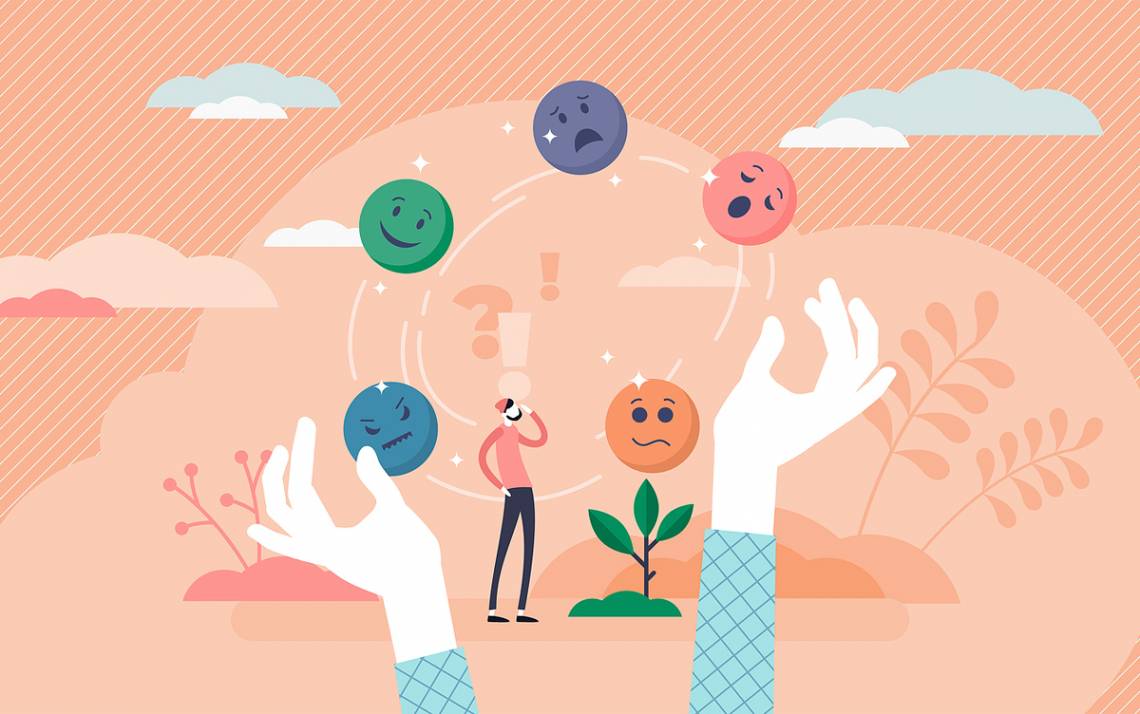Build Your Emotional Intelligence to Strengthen Resilience
Strong emotional and social skills also improve interpersonal relationships

 Nadia Pasha had the technical experience to lead caregivers at Duke Raleigh Hospital, but she wanted to boost her emotional intelligence to better serve her team.
Nadia Pasha had the technical experience to lead caregivers at Duke Raleigh Hospital, but she wanted to boost her emotional intelligence to better serve her team.
“Managing such a big team is a challenge,” said Pasha, who became associate medical director for hospital medicine last March. “I wanted to support and empathize with my team so they could be at their best.”
Pasha enrolled in Duke Learning & Organization Development’s “Emotional Intelligence” course last September to grow her interpersonal relationships. The course will be offered again by L&OD in March and September.
Emotional intelligence or emotional quotient “EQ” is a set of emotional and social skills that help individuals make positive decisions about their behavior to improve productivity, cope better with challenges and build relationships, according to Sanne Henninger, director of Patient Experience at the Duke Private Diagnostic Clinic and a former mental health therapist.
“Emotional intelligence helps us think rationally and respond in a way we won’t regret later,” Henninger said. “It also teaches us to be aware of the emotions of others so that we can best navigate our communication. If we are not self-aware, we can’t manage our responses.”
Get started practicing these aspects of emotional intelligence.
Understand your emotions
Joy Birmingham, assistant director of Duke’s Learning & Organization Development (L&OD), said emotional intelligence begins with self-awareness, the ability to understand your emotions and how they affect people around you.
Develop self-perception by recognizing immediate feelings as situations arise and consciously choose how you want to respond. Another strategy is to ask colleagues to help you better understand your strengths and areas for development. The more you know about yourself, the more you can target your professional development.
“If you don’t develop your emotional intelligence, then you’re unlikely to succeed in people matters, no matter how technically skilled you are at your job,” Birmingham said.
 Chris Hendricks, director of Outdoor Adventures with Recreation & Physical Education, asked for feedback from his colleagues while taking L&OD’s course on emotional intelligence a few years ago. Hendricks learned he didn’t regard his own feelings with enough care.
Chris Hendricks, director of Outdoor Adventures with Recreation & Physical Education, asked for feedback from his colleagues while taking L&OD’s course on emotional intelligence a few years ago. Hendricks learned he didn’t regard his own feelings with enough care.
He takes 10 minutes each morning to write his feelings in a journal and lists his accomplishments such as the pride he felt after establishing Belay Buddies, a website for participants of the Duke Adaptive Climbing program to keep in touch with one another throughout the pandemic.
“I can’t help you if I’m ignoring my feelings,” Hendricks said. “If I jump into a situation when I’m already feeling stressed, that will rub off on you. Journaling helps me process where my head and heart are and know if I have the bandwidth to take on more.”
Express empathy
Laura Lane, a sector director with the Career Management Center in the Fuqua School of Business, meets with students who are searching for jobs in marketing, media, entertainment and sports.
Between sharing her expertise on interviewing and resume building, Lane acts as a virtual shoulder to lean on as students manage the highs and lows of the job hunt.
“They need a dose of empathy,” she said.
 Empathy is the ability to understand the emotions, needs and concerns of others, which are important for building positive interpersonal relationships. Lane said practicing empathy is putting yourself in someone else’s shoes and seeing their perspective.
Empathy is the ability to understand the emotions, needs and concerns of others, which are important for building positive interpersonal relationships. Lane said practicing empathy is putting yourself in someone else’s shoes and seeing their perspective.
During a meeting with a student who was discouraged after not landing a job after several interviews, Lane observed that student appeared upset and encouraged the student to take a few days off to step away, refresh and then restart the job search.
“Recognizing that allowed me to focus more on his mental well-being in the meeting rather than discussing interviewing progress,” she said. “He needed emotional support.”
Don’t let emotions get the best of you
Sanne Henninger, with the Duke Private Diagnostic Clinic, advises colleagues to take their time responding to questions, concerns and other situations.
In charged situations, make a conscious choice to pause and take a moment to practice mindfulness to allow initial feelings to subside. Acknowledging your feelings allows you to consider the best approach for handling the situation instead of expressing your unfiltered emotions.
“Know that your immediate reaction isn’t going to be the best one,” Henninger said. “You want to think with a clear mind.”
 Amy Rudy, nurse manager for Duke Raleigh’s Radiology department, eliminates distractions and fully engages in conversation when she meets with colleagues in her office. When a colleague recently came to Rudy to discuss a family member who had cancer, she paused before responding.
Amy Rudy, nurse manager for Duke Raleigh’s Radiology department, eliminates distractions and fully engages in conversation when she meets with colleagues in her office. When a colleague recently came to Rudy to discuss a family member who had cancer, she paused before responding.
“I have this immediate emotional response that’s like, ‘How can I fix their problem,’” Rudy said. “By having some mindfulness, I’ve realized that a lot of people simply want to be heard. Lending an empathetic ear is more helpful than offering advice that they’ve probably heard a hundred times.”
Watch: Daniel Goleman, author of the book “Emotional Intelligence,” discuss compassion in this TED Talk.
Got a story idea? Send ideas, shout-outs and photographs through our story idea form or write working@duke.edu.